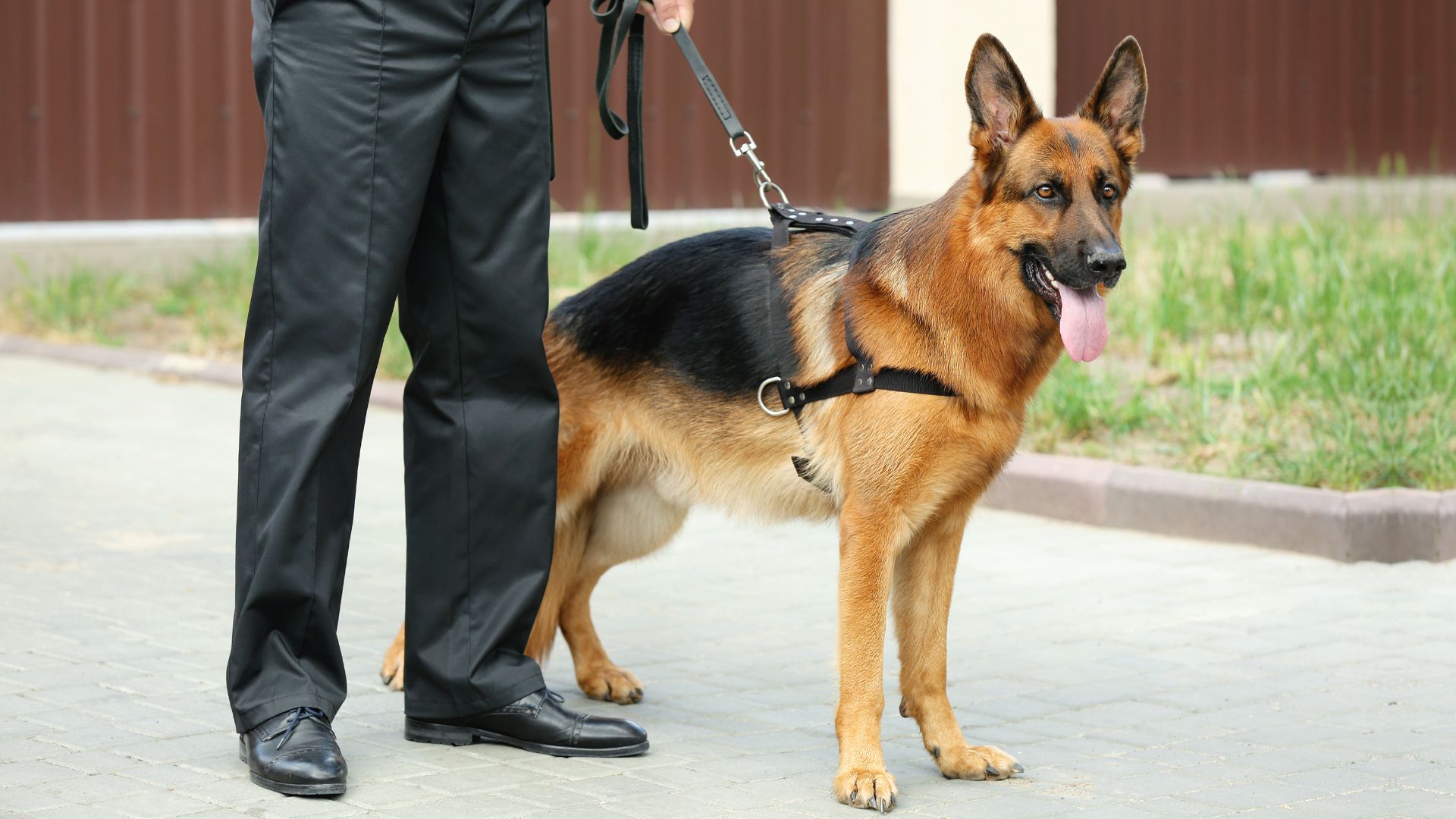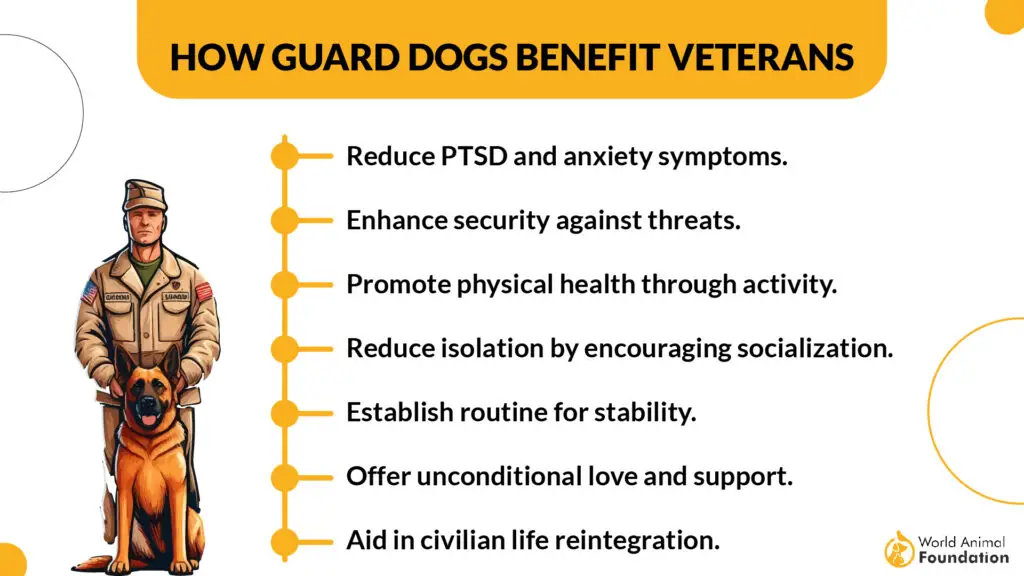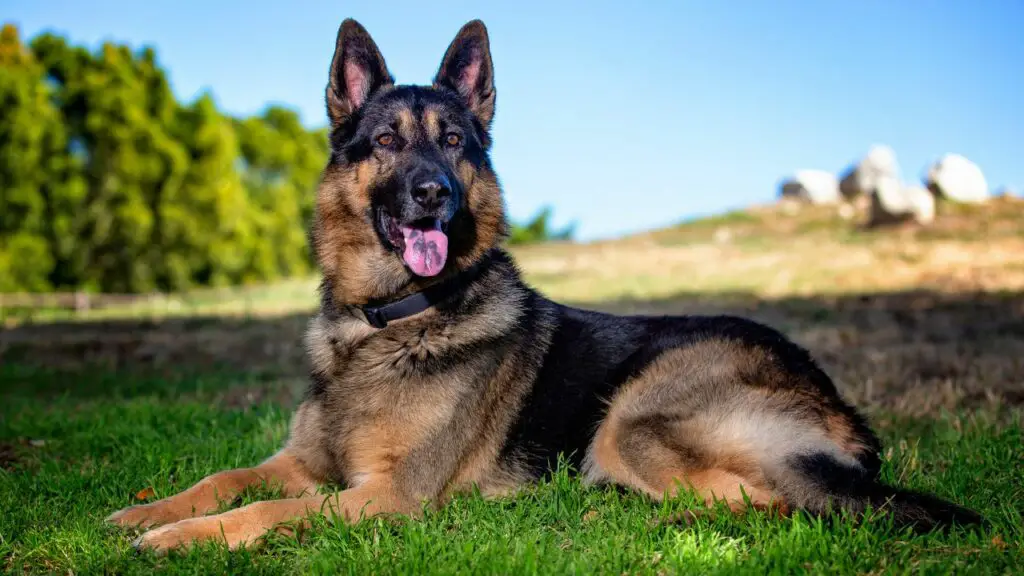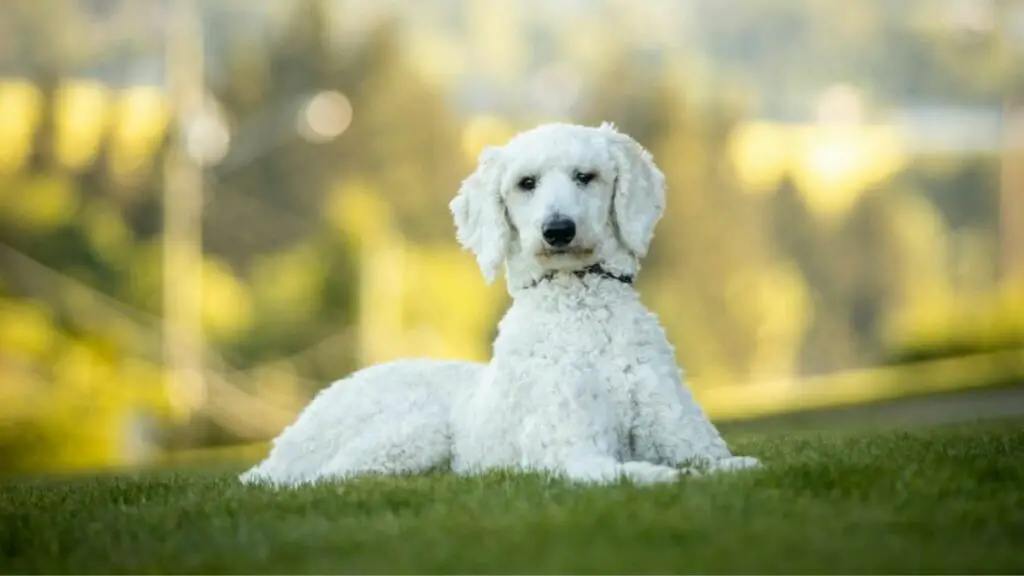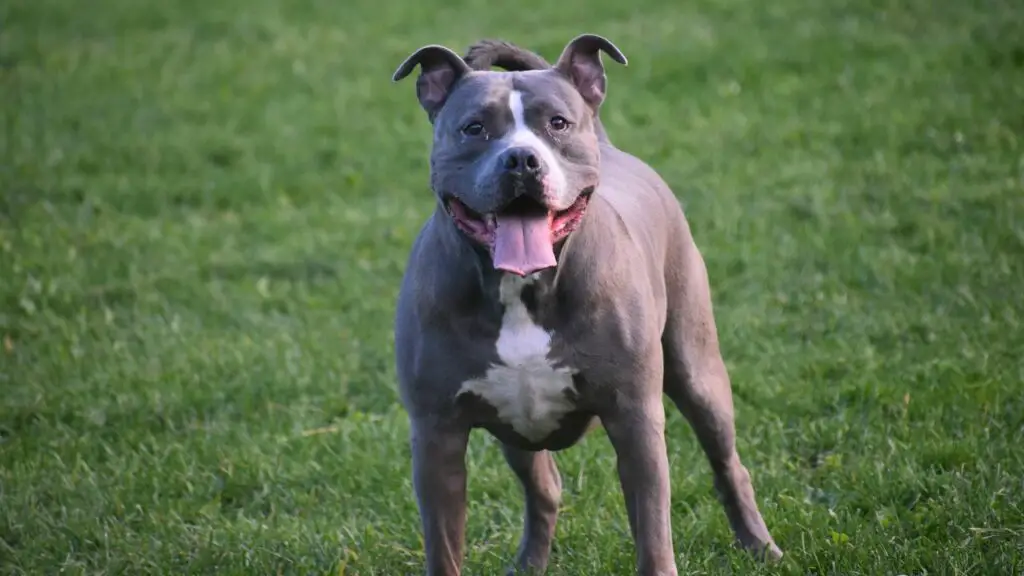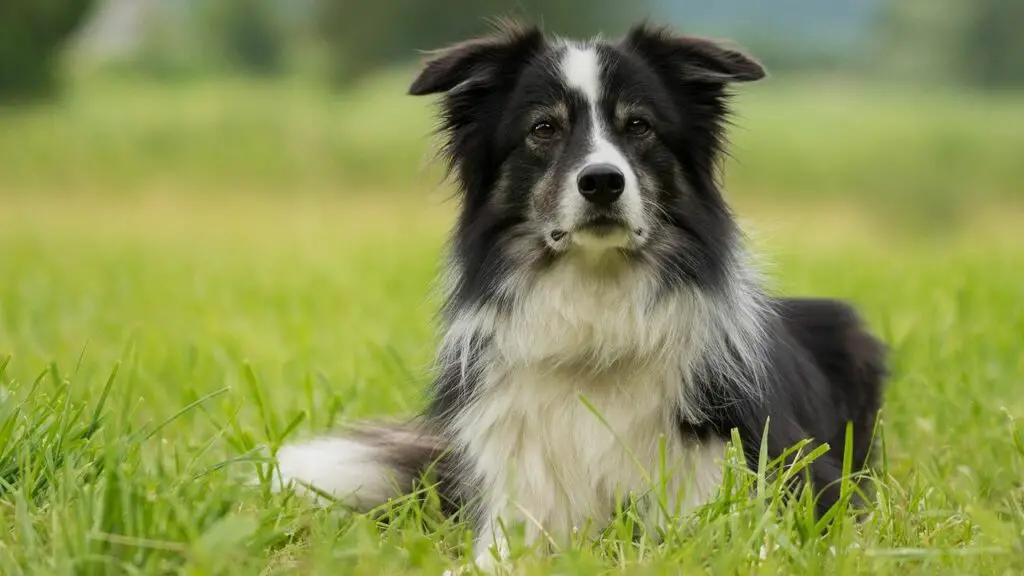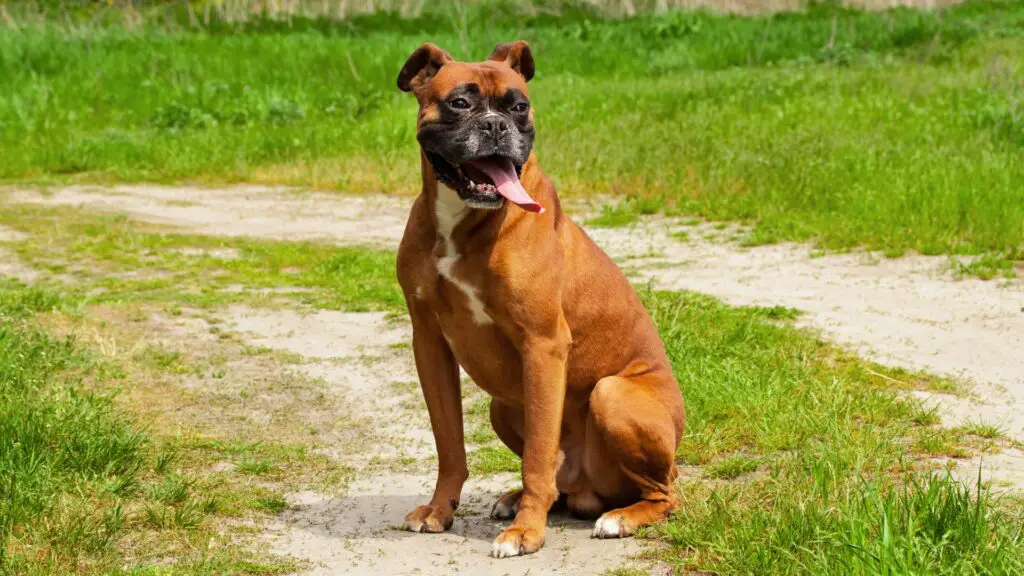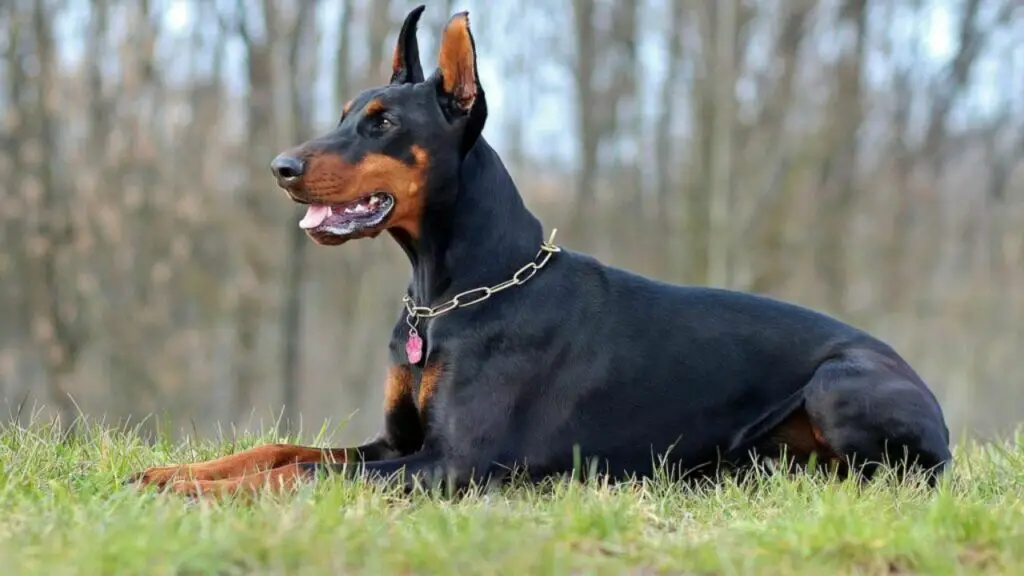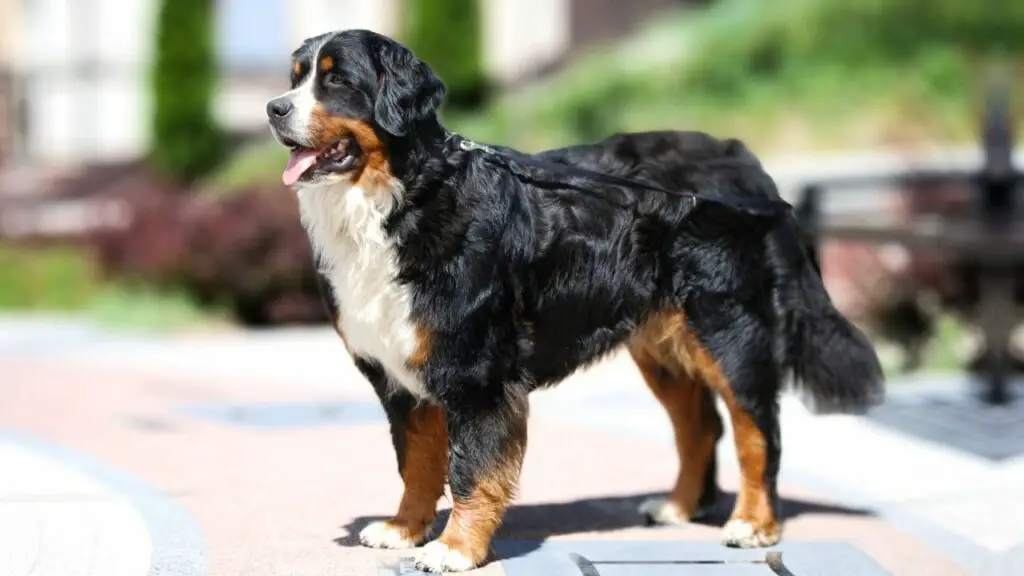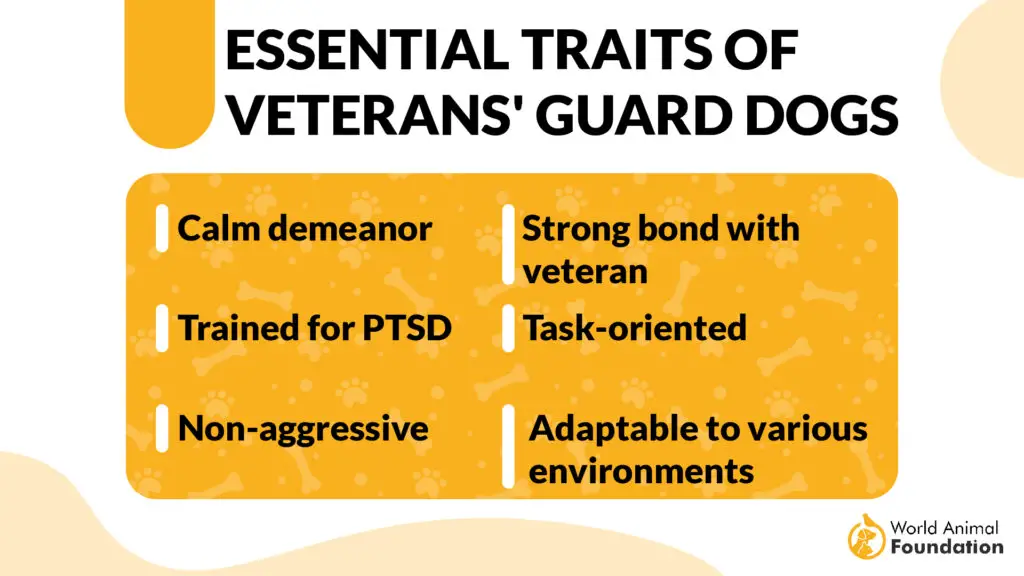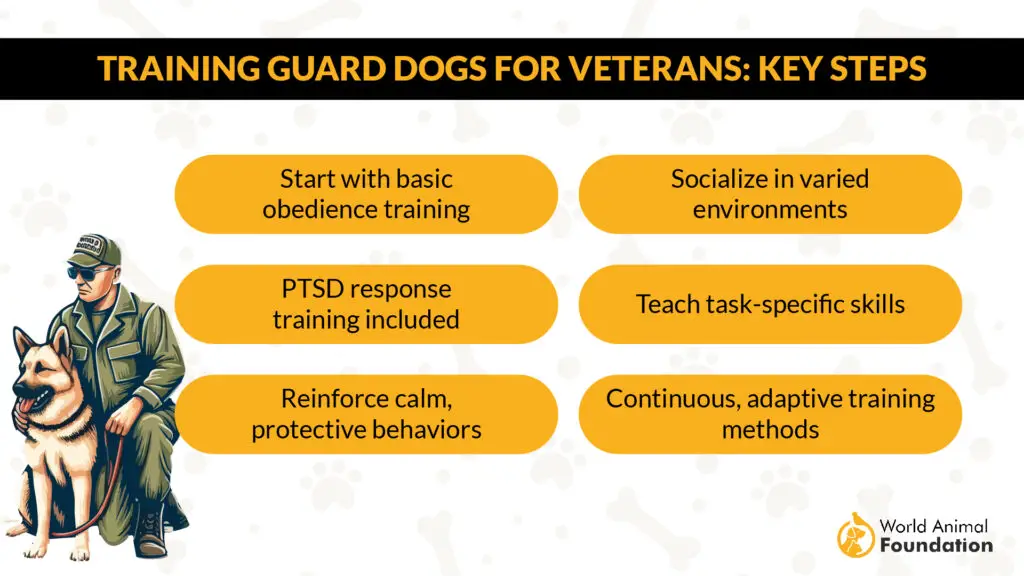Veterans often face unique challenges transitioning back to civilian life, and a loyal, protective companion can provide invaluable support. A well-chosen guard dog offers not just security but also companionship, reducing stress and promoting a sense of well-being. This article explores seven exceptional breeds ideally suited for veterans, considering temperament, trainability, and their ability to provide both emotional and physical protection. From imposing guardians to devoted companions, discover the perfect canine partner to help veterans navigate their new normal.
Coming home after serving can be a fresh challenge for many veterans. Adjusting back to daily life might bring along tough moments like flashbacks or anxiety. And worrying about your family’s safety? That’s an extra weight no one needs.
But here’s a bit of bright news: studies suggest that having a dog may boost heart health and metabolism in U.S. military veterans. It might not only ease your heart but also guard your home. Yes, dogs are more than just cuddly companions; they can be your frontline protectors too!
Dogs are famously loyal, and choosing the right breed can deter potential intruders and safeguard your family even before threats materialize. The ideal guard dog will seamlessly integrate with your way of life. Curious about finding your four-legged hero? Let’s dive into the best guard dogs for veterans, your guide to finding a loyal friend who watches over your world.
Best Guard Dogs for Veterans
1. German Shepherd
German shepherds are celebrated for their valor and discernment, and they are widely used in military and police roles across the globe. Known for their keen sense of smell and hearing, they excel at sensing danger or intruders from afar. With a protective instinct, they serve as outstanding guard dogs for veterans. They’re adept at following both verbal commands and hand signals and eager to form strong bonds with their owners.
German Shepherds make wonderful service dogs as they are sufficiently large to assist with mobility issues, offering a stable support system. Moreover, their exceptional intelligence allows them to learn tasks quickly, and they are always ready to engage in work when needed.
@exclusivek9trainer
Starting out personal protection training! #foryou #foryoupage #fyp #dogtraining #personalprotectiondog #personalprotection #ppd #gsd #germanshepherd #shepherd
♬ sonido original – 𝘤 𝘭 𝘪 𝘱 𝘴 ARTURO
However, their strong territorial nature can be a challenge. They might show aggression towards strangers entering their space. This breed requires careful, consistent training to ensure proper socialization and is ideally suited for owners with experience.
2. Standard Poodle
Standard Poodles are bright, devoted companions that excel as guard dogs for veterans. With their protective yet amiable nature, they provide both friendship and an additional security layer. These dogs are fiercely loyal, ready to confront any threat to their owners. Their bark serves as an effective alert system, warning off strangers with their presence. Quick learners and responsive to training, Poodles can master defensive skills with ease.
Despite their less formidable appearance, their strength and agility should not be underestimated—they’re more than capable of handling unwanted visitors. They’re also incredibly social, enjoying interactions not just with people but also with other dogs, and are always keen on making new acquaintances.
Standard Poodles need regular physical and mental exercise to remain happy and healthy. They thrive on walks, playtime, and intellectual challenges like puzzle toys or agility courses. They deeply value companionship and may experience separation anxiety if left alone for too long, underscoring their need for engagement and affection.
3. Pitbull
Pitbulls, with their sizable presence and formidable jaw strength, are excellent guard dogs for veterans. Their robust, tank-like build, featuring a broad head and mouth, gives them an intimidating appearance, although they’re truly affectionate “fur babies” at home. This breed excels in distinguishing between those to love and those to warn off, displaying bravery in protection.
@awaynia_jihed
dogs #dogsoftiktok #dog #dogs
♬ som original – Maiko
Pitbulls are notably vigilant. Whether it’s a routine visit from the mailman or a potential intruder, their bark—which is notably loud—serves as a robust deterrent, often enough to dissuade burglars.
The ASPCA highlights Pitbulls as historically cherished family pets, recognized for their gentle, loving, and loyal nature. Even those bred for combat are not inclined to human aggression.
Forming deep connections with their owners, a Pitbull offers lifelong companionship. This bond, however, demands commitment—expect to dedicate substantial quality time to nurturing this relationship throughout your pet’s life.
4. Border Collie
Border Collies hold the title of the smartest dogs in the world. They revel in having tasks to do and excel in training, making them perfect for roles like mountain rescue or detection work. These dogs are not just smart; they’re also incredibly loyal and love being part of a lively household. Their herding instincts mean they naturally protect their family, offering loyalty and a strong sense of companionship.
These intelligent canines often form a deep, special bond with one person, yet they remain loving and warm towards everyone in the home. With their alert and watchful nature, Border Collies are excellent at providing an early warning system, ensuring the safety and security of your home.
According to Petplan, Border Collies are happiest in active, outdoor environments where they can engage fully with their family. They’re generally sociable with other dogs and can coexist peacefully with cats, especially if introduced early on. For veterans who lead an active lifestyle, a Border Collie could be the perfect fit, bringing both joy and a sense of security to the home.
5. Boxers
Boxers, known for their versatility, have been invaluable as police dogs and even as seeing-eye dogs. However, they shine as companion and guard dogs, earning a reputation for their unwavering loyalty to families, particularly where children are involved.
Renowned for their obedience and affection, Boxers excel as service dogs, too. With the right training, they can fine-tune their protective instincts to be in sync with their owner’s emotions and needs. They stand out for their trainability, showing less inclination to roam or bark unnecessarily, making them ideal for teaching specific commands, such as barking on cue to deter strangers.
The PDSA points out that while Boxers are intelligent, their lively nature demands early, positive, reward-based training. Unlike many breeds, Boxers mature slowly, retaining a puppy-like zest well into adulthood. This prolonged energy surge, combined with their size, can be a handful, suggesting they might not be the best choice for first-time dog owners.
6. Doberman Pinschers
Since the late 1800s, Doberman Pinschers have been trusted guardians, from military duties to protecting royalty. These medium-sized, muscular dogs are incredibly adaptable to different environments.
View this post on Instagram
Despite their serious appearance, Dobermans are among the top guard dog choices for veterans, earning the nickname “velcro dogs” due to their strong attachment to their owners. They’re not just loyal; they’re also kid-friendly, energetic, highly trainable, playful, and sociable, making them well-rounded companions and formidable protectors of their families.
Dobermans are bursting with energy and thrive on both physical and mental challenges. They grow to be quite large and require daily exercise to match their high energy levels, ensuring they stay healthy and content.
7. Bernese Mountain Dog
The Bernese Mountain Dog presents a well-proportioned, robust physique. Originally bred for farm and pasture protection, it is an exceptional watchdog. This breed naturally guards its family and domain, alerting through barks at unfamiliar presences, yet it remains non-aggressive. Initially reserved around strangers, the Bernese warms up quickly once its owner signals safety.
Renowned for their calm, amiable demeanor, these dogs blend seamlessly into family life, showcasing intelligence, a willingness to learn, and ease of training. Known as the “Berner,” this sociable breed craves human interaction and prefers to be involved in all family activities. Loyalty and affection are hallmarks of their character, devoid of any malice, shyness, or aggression.
According to the AKC, their smart and gentle nature facilitates training, though it’s vital to remember that Berners are sensitive to stern correction and do not fare well in solitude. Tailoring training to their sensitivities and ensuring they’re not left alone for extended periods are key to nurturing a happy, well-adjusted Bernese Mountain Dog.
Essential Traits of Veterans’ Guard Dogs
The essential traits of guard dogs for veterans encompass a unique blend of qualities tailored to meet the specific needs of their handlers. Firstly, these dogs possess unwavering loyalty, ensuring they’re always by the side of their veteran. A high level of intelligence is crucial, enabling the dog to learn and perform a variety of tasks.
Emotional sensitivity is another key trait, allowing the dog to detect and respond appropriately to their veteran’s mood and emotional state, which is particularly beneficial for those coping with PTSD. Physical strength and agility ensure the dog can effectively protect and assist their handler in various situations. Lastly, a calm and adaptable demeanor is essential as well.
Training Guard Dogs for Veterans: Key Steps
Training a guard dog for a veteran is a journey that blends discipline with compassion, aimed at creating a loyal protector and a compassionate companion. This chart outlines the key steps in preparing these devoted animals to serve those who’ve served us, ensuring they’re not just trained in defense but also attuned to the emotional and psychological needs of their veteran partners.
Conclusion
Guard and service dogs, particularly breeds like Labrador Retriever and Golden Retriever dogs, are invaluable companions for veterans. The qualified service dog breed is not only a wonderful service animal but is also adept at aiding those with Post Traumatic Stress Disorder (PTSD), thanks to their empathetic nature and ability to perform search and rescue tasks.
Proper training transforms these dogs into PTSD service dogs, enhancing their natural skills. Known as “velcro dogs” for their close bond with owners, these breeds make great service dogs.
Their capabilities extend beyond companionship; with a Lab’s well-balanced personality and Golden’s keen sensitivity, they excel in roles from service animals to game dogs. This synergy of characteristics underscores the profound impact a properly trained guard dog can have on a veteran’s life, offering both protection and healing.
Ultimately, the “best” guard dog for a veteran depends on individual needs and lifestyle. While breeds like German Shepherds and Rottweilers offer renowned protection, smaller breeds like Bull Terriers can be equally effective deterrents. Consider temperament, energy levels, and training requirements alongside potential therapeutic benefits. A well-trained, loyal companion, regardless of breed, can enhance a veteran’s sense of security and well-being, easing anxiety and providing unwavering support during their transition back to civilian life. Thorough research and careful selection are crucial for a successful partnership.

